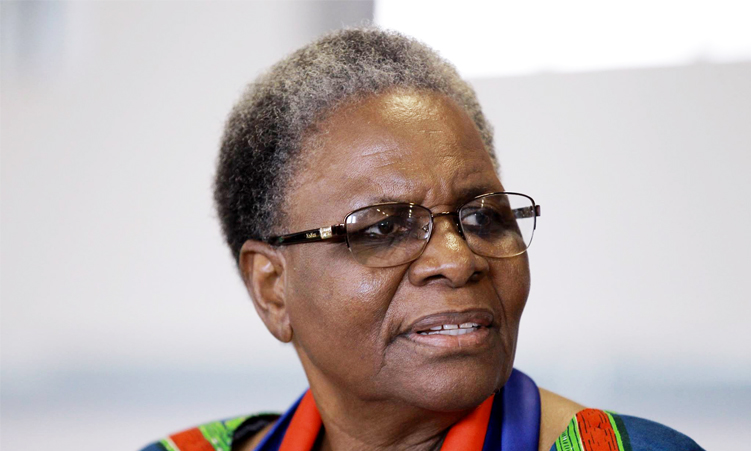MINIBUS drivers in Windhoek on Friday took issue with law enforcement agencies, who they said constantly painted a picture of them as the main culprits in road deaths, while conveniently ignoring the factors that influence the standards of their trade.
The Motor Vehicle Accident (MVA) fund, as well as the Windhoek City traffic police, visited a number of pick-up points in the capital on Friday to raise their concerns about overloaded buses. Minibuses have been determined as concern number one for the road safety sector, MVA Manager for Accident and Injury Prevention Johann Boois told drivers at the Rhino Park loading area.This is because of the large number of passengers these buses can accommodate.Namibia has lost as many as 17 lives in a single minibus accident.The problem is made worse by bus owners who modify the capacity of their vehicles by adding extra seats, Boois said.This affects the overall performance of the vehicle, as it needs to carry more weight than it was designed for.Drivers were quick to point out a loophole in the laws regulating the number of customers they are allowed to carry.According to Namibian legislation passed in 1999, children below the age of three are not counted as passengers and thus do not pay to board such a bus.Two children between the ages of three and six are counted as one person, while three children aged between six and 13 are counted as two passengers.This could theoretically lead to a situation where 28 people would legally be allowed to board a 14-seater bus, one driver argued, should each adult passenger carry an infant.”So why when we get to a roadblock am I charged with overloading if I have four (extra) children on board?” “At the roadblocks they don’t understand this.And when there’s an accident the media report that the bus was overloaded,” another charged.The rules regarding children are also difficult to enforce, some drivers claimed, as passengers refuse to listen or insist on having things done their way.Boois explained to drivers that the law was still in its infancy, and could still be changed to address loopholes such as this.Another complaint by minibus drivers was that law enforcement agencies often criticise them for modifying their buses, while companies in the tourism sector have also been known to do this without any uproar or protest.”From where we’re standing it looks like you guys are targeting us.Why is law enforcement only acting now after about 10 years? We did this (modified buses) when we worked for others.Now that we’re doing it for ourselves, you tell us that’s not the way to do it,” some other complaints read.Boois responded by telling drivers that while they may feel unfairly targeted, there was simply no way that Government could allow the current state of affairs to continue.”To set the record straight, yes we are targeting you guys.You are target number one in a long list of things that need to be set straight,” Boois said.”While we respect any business’s efforts to increase its profits, this not a compromising ground,” Boois told The Namibian after the meeting.”The cost of a life is simply valued too high”, he said.Minibuses have been determined as concern number one for the road safety sector, MVA Manager for Accident and Injury Prevention Johann Boois told drivers at the Rhino Park loading area.This is because of the large number of passengers these buses can accommodate.Namibia has lost as many as 17 lives in a single minibus accident.The problem is made worse by bus owners who modify the capacity of their vehicles by adding extra seats, Boois said.This affects the overall performance of the vehicle, as it needs to carry more weight than it was designed for.Drivers were quick to point out a loophole in the laws regulating the number of customers they are allowed to carry.According to Namibian legislation passed in 1999, children below the age of three are not counted as passengers and thus do not pay to board such a bus.Two children between the ages of three and six are counted as one person, while three children aged between six and 13 are counted as two passengers.This could theoretically lead to a situation where 28 people would legally be allowed to board a 14-seater bus, one driver argued, should each adult passenger carry an infant.”So why when we get to a roadblock am I charged with overloading if I have four (extra) children on board?” “At the roadblocks they don’t understand this.And when there’s an accident the media report that the bus was overloaded,” another charged.The rules regarding children are also difficult to enforce, some drivers claimed, as passengers refuse to listen or insist on having things done their way.Boois explained to drivers that the law was still in its infancy, and could still be changed to address loopholes such as this.Another complaint by minibus drivers was that law enforcement agencies often criticise them for modifying their buses, while companies in the tourism sector have also been known to do this without any uproar or protest.”From where we’re standing it looks like you guys are targeting us.Why is law enforcement only acting now after about 10 years? We did this (modified buses) when we worked for others.Now that we’re doing it for ourselves, you tell us that’s not the way to do it,” some other complaints read.Boois responded by telling drivers that while they may feel unfairly targeted, there was simply no way that Government could allow the current state of affairs to continue.”To set the record straight, yes we are targeting you guys.You are target number one in a long list of things that need to be set straight,” Boois said.”While we respect any business’s efforts to increase its profits, this not a compromising ground,” Boois told The Namibian after the meeting.”The cost of a life is simply valued too high”, he said.
Stay informed with The Namibian – your source for credible journalism. Get in-depth reporting and opinions for
only N$85 a month. Invest in journalism, invest in democracy –
Subscribe Now!






